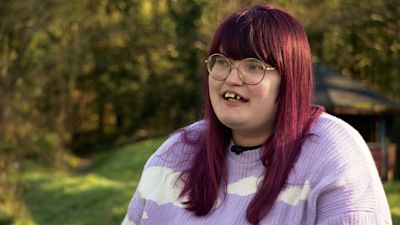'Why can't I have my chance to have a baby?': Families stuck in fertility waitlists because of Covid

Video report by ITV Wales journalist Charanpreet Khaira
Welsh families trying to conceive a baby are facing waiting lists "massively impacted" by Covid-19.
That's according to research by the Fertility Network UK. They found that treatment waiting times in South Wales went from 6 months to as much as 15 months over the course of the pandemic.
With many health boards operating on emergency cases only, there have been delays in diagnosis - so many families don't even know why they are struggling to conceive.
Lucy Edwards has been trying to have a baby for the past seven years. Before the pandemic, she was diagnosed with Polycystic Ovarian Syndrome, but was still waiting for fertility treatment.
When Covid struck, all of that was put on hold. Appointments were cancelled and she was no longer able to get the help she needs. As time went on, she began to feel under immense pressure to get medical treatment before it was too late.
Research by Fertility Network UK found Covid has caused multiple delays in diagnosing fertility problems. That means that many like Lucy have spent the last two years not even knowing why they can’t conceive.
As Covid backlogs continue to squeeze the NHS, the urgency builds for families worried their time will run out. Not only is fertility treatment less effective the older you get - but there's also an age-based cut off in Wales to receive treatment.
A spokesperson from the Welsh Government said 'We understand the pandemic has added further anxiety to those undergoing fertility services.
'Fertility services across Wales are now fully functioning again and the Welsh Health Specialised Services Committee (WHSSC) which commissions these services, has confirmed women whose treatment was affected by the pandemic will still be able to access the fertility treatment they would have been entitled to when services were suspended, regardless of their age.'
Lucy's now joined a medical trial for new fertility medication. She's hoping that will speed up the process of her getting the treatment that she needs.
She says that one of the biggest impacts of her wait for treatment has been on her mental health. Over the pandemic, she became anxious and depressed that her attempt to have a baby wasn't being taken seriously.
'I know it's seen as non-urgent because it's not life threatening. But to me, you know, that's the life I wanted and that is under threat. The way it's affected my mental health - that's really deteriorated.'
Fertility Network UK provides free and impartial support, advice, information and understanding for anyone affected by fertility issues.
Gareth Jones speaks about he and his wife's fertility journey from a male perspective: